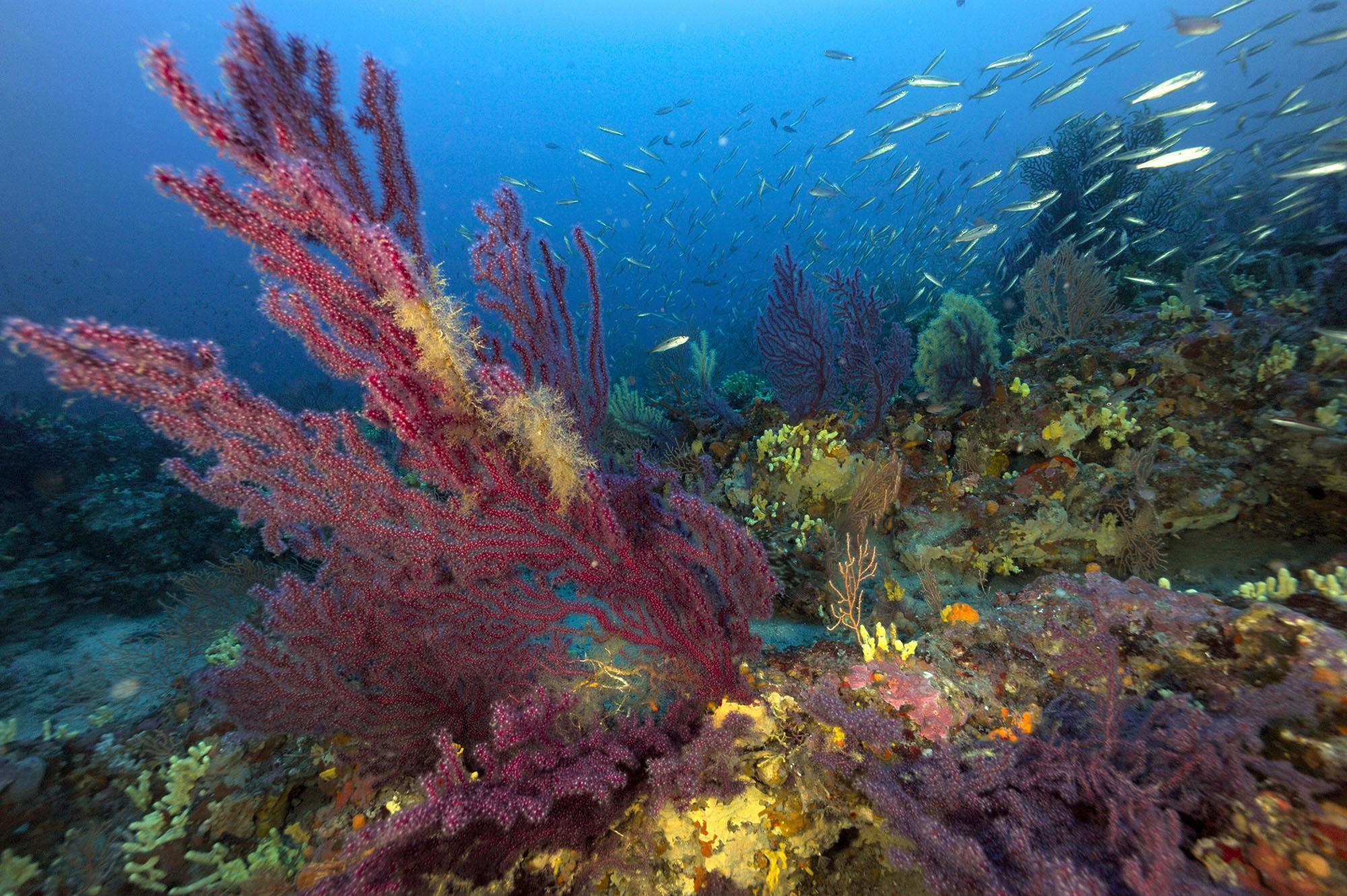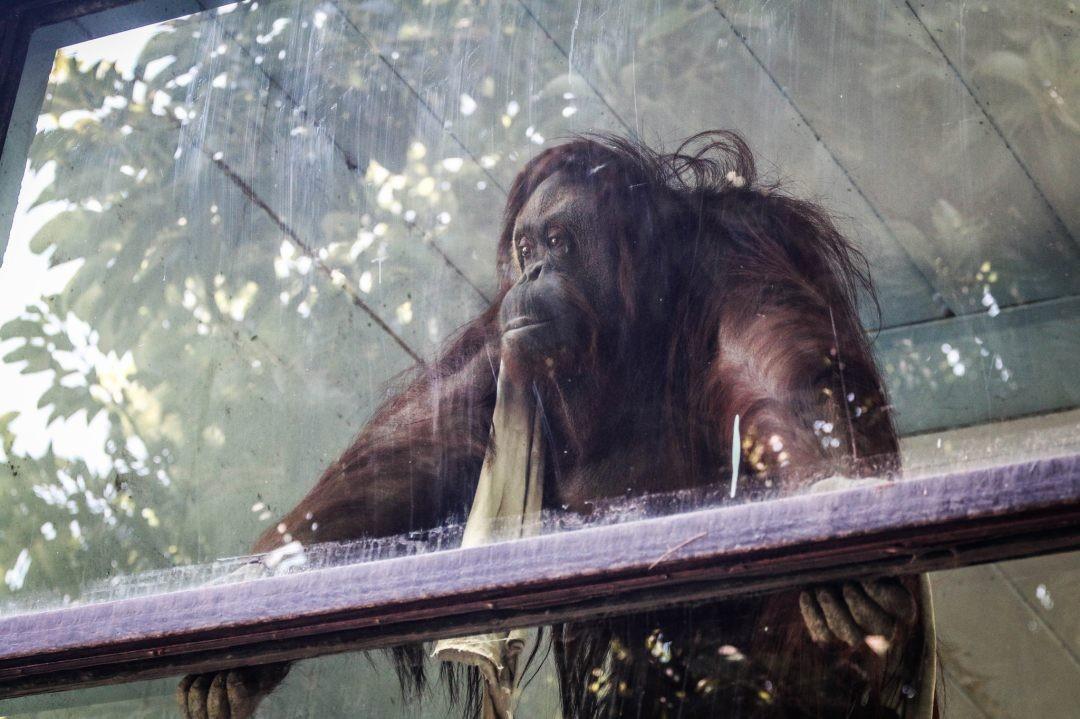Ecological Publics: Imagining Epistemic Openness
archive


Ecological Publics: Imagining Epistemic Openness
The contemporary epoch seems heavy with dark imaginings—any quick glance at the daily headlines reveals them day after day: projections, specters and threats, moving like shadow-puppets across the screens of televisions and computers, muttering from radios, from social media sites and newspapers. The threats press in relentlessly, pushing public consciousness ever deeper into a theatre of terrors: the endless “war on terror”; the looming threat of nuclear catastrophe; the angst generated by rising ethno-nationalisms; the relentless daily struggle of multitudes for survival against poverty, drought, climate change and war; the rise of the robots and the potential threat of mass human unemployment—an entire multiverse of threats that stretch out towards the ultimate dark horizon of the Anthropocene and the threat of irreversible ecological breakdown.
The term ‘Anthropocene’—an etymological combination of ‘anthropos’ (‘human’/‘man’) and ‘kainos’ (‘new’/’current’)—is increasingly deployed to communicate the claim that Earth has been capitulated into a new era by humanity as a geological force extensively modifying the Earth System itself, most especially in the form of climate change.1 In reality, the Anthropocene is the apotheosis of the necrotic, predatory imperatives of Eurocentric petro-capitalism and rampant industrial consumerism as they eat into the living crust of the planet, choke the oceans and pollute the air—it would far better be named the ‘Capitalocene’.2 The Anthropocene/Capitalocene is in many senses an ecological nemesis, and ultimately rests on predatory colonial foundations3—those now underpinning the global order of unjust relationships between the states of the global North and those of the global South.4
The global public imagination remains shaped to an extensive degree by a rationalizing historical discourse of ‘civilization’—now taking the form of ‘neoliberal economic progress’ that both operates and disguises morbidly uneven dynamics of contemporary domination between “imperial and subjected states.”5 Indeed, uneven structures and relations are the core characteristic of contemporary globalization, operationalized by the peculiar legal privilege of the transnational corporate form.6 And just as uneven distribution was (and remains) “a condition for the very existence of modern, fossil-fuel technology,”7 deep pathological unevenness8 remains the hallmark of the appropriative neoliberalism now suffocating the living world in panoptic forms of eco-surveillance and governmentality.9
Against this Anthropocene/Capitalocene horizon, what might it mean, then, to ‘recover’ public imagination? Where might we start?
The global public imagination remains shaped to an extensive degree by a rationalizing historical discourse of ‘civilization’—now taking the form of ‘neoliberal economic progress’ that both operates and disguises morbidly uneven dynamics of contemporary domination…
I want to start to answer this question by quoting Drucilla Cornell and Steven D. Seely in their contribution to this e-series. Writing on public imagination, and drawing on Spinoza, Cornell and Seely make the important point that
the more we open ourselves to being affected by others, the more we allow ourselves to engage in complex situations, the richer our imagination becomes and the more we move away from our own inevitably ‘inadequate’ ideas towards a rational commons.
Writing in Octavia’s Brood, Walidah Imarisha argues that “the decolonization of the imagination is the most dangerous and subversive form there is: for it is where all other forms of decolonization are born. Once the imagination is unshackled, liberation is limitless.”10
Nothing, I suggest, could be more urgent than unshackling the human imagination in the age of the Anthropocene/Capitalocene. Nothing could be more pressing than the need to decolonize the public imagination from neoliberalism. Awakening a resistive, fresh imagination is the fulcrum point for global systemic change—and nothing could be more empowering than grasping the radical intimacy between the personal and the global in relation to climate change (the Anthropocene/Capitalocene’s most salient marker): If the Anthropocene/Capitalocene horizon insists that ‘we’—the all-inclusiveness of this must be challenged, of course—now collectively amount to a geological event of decisive force, then perhaps ‘we’ (and the meaning of ‘we’ remains contestable even for progressive narratives) can collectively amount, over time, choice by choice, to a tidal wave of transformation.11
Nothing could be more pressing than the need to decolonize the public imagination from neoliberalism. Awakening a resistive, fresh imagination is the fulcrum point for global systemic change...
Such a prospect, however, mandates a re-imagined politics. For too long, the collective global imagination has been forced into a template supplied by the elitist power structures of the international order, and pushed by neoliberalism’s ubiquitous plausibility structures selling the mega-lie that “there is no alternative.” This lie must be challenged at every level: micro, meso, and macro. It is time to shatter the dominant monoculture of mind ultimately sourced in Eurocentrist colonizing capitalism.12
Cornell and Seely’s rational commons arises precisely from encounter with difference and complexity—for, as they suggest, the encounter with diversity provides “the maximal clarification of inadequate ideas.” I agree with them that this level and kind of encounter is now fundamental to recovering a non-monolithic, energetic public imagination—as is the affective opening to ‘others’ lying at the heart of their contribution.
What, though, if we broaden our imagination concerning these ‘others’? What if we could embrace new constituencies of meaning-making beyond ‘the human’?

The cutting edge of science reveals realities with ethical implications long understood by indigenous populations and by faith-based worldviews—worldviews core to the kind of diversity necessary for a meaningful future commons. New scientific work reveals a world alive with forms of agency that the old dualistic ontology of Eurocentric rationalism foreclosed. It is urgently necessary to include previously excluded human beings and communities in a new public imagination enriched by the diversity of ‘others’, but against the Anthropocene/Capitalocene horizon it seems dangerously short sighted to continue to believe that the human being is the only actor whose agency counts. Indeed, it seems increasingly out of touch to continue to drag around the carapace of an old necrotic body of Eurocentric thought dulling a different possible sense of the world as it is. If the ‘human planet’ is increasingly pressed beyond ecological limits, we’d best urgently reimagine both humanity and planet alike.
Of great relevance to this re-imagination is the fact that our best science now insists that the mind/matter split is untenable:13 Matter has escaped its imposed (imagined) inertia to announce itself as “materialization [,] a complex, pluralistic, relatively open process”—to step into view as lively materiality—which, once appreciated, relocates all human viewers/knowers “as thoroughly immersed within materiality’s productive contingencies.”14 Materiality has its own lively agencies. This insight turns on its head “the conventional sense that agents are exclusively humans who possess cognitive abilities, intentionality and freedom to make autonomous decisions and the corollary presumption that humans have the right or ability to master nature.”15

Sandra the orangutan, at the Buenos Aires Zoo
Since the conventional sense of Eurocentric human mastery brought us to the Anthropocene/Capitalocene, what could be more apt than the de-centering of the subject implicit in the terminology itself? What if, instead of seeing ourselves as the isolated selves installed at the heart of the subject-object relations of the international order we could experience ourselves, imaginatively as we all in reality are: entangled in the complex, lively, nonlinearity and self-emergent properties of materiality itself? What if transits beyond and through skins, leaves, pores, and a range of other breathing portals in bodies (‘ours’ and ‘others’) could be rendered visible to human public imagination, enabling politics, law, economics and more to embrace the ceaseless material intra-action of the world as a “spatial and temporal web of interspecies dependencies?”16 What if ‘we’ humans developed a completely different view of who is here? What if global public imagination could become so richly ecological17 that non-human constituencies of meaning-making could become intrinsic to a new reimagined ‘public’—even of multiple ‘publics’? What if we could really sense, feel and live, day by day, the world as a movement of relations and processes of production that emerge “in a kind of chaotic network of habitual and non-habitual connections, always in flux, always reassembling in different ways”?18 What if such complexity and contingency was something to embrace, rather than to fear? What levels of epistemic openness might then be possible?
The Anthropocene/Capitalocene crisis demands a new ethical responsiveness to materiality—and a new humility. The crisis demands nothing short of a new vision of the human as but one partner in the never-ceasing movement of variegated co-partners entangled as a planetary whole. The crisis demands, in short, a new public imagination—and newly imagined ‘publics’—ecological publics full of the freshly appreciated meaning-making capacities of yet-to-be-imagined constituencies. As Imarisha insists, “Once the imagination is unshackled, liberation is limitless.”
1. Crutzen popularized the term: P.J. Crutzen, "Geology of Mankind" (2002) 23 Nature 415; P.J. Crutzen, "The Anthropocene," in E. Ehlers and T. Krafft, Earth System Science in the Anthropocene (Berlin and Heidelberg: Springer, 2006) pp. 13-18.
2. D. Haraway, "Anthropocene, Capitolocene, Chthulucene: Staying with the Trouble," a lecture given by Donna Haraway at University of California, Santa Cruz on September 5 2014: available at https://vimeo.com/97663518 (last accessed 18th September 2015); A. Grear, "Deconstructing Anthropos: A Critical Legal Reflection on 'Anthropocentric' Law and Anthropocene 'Humanity'," (2015) 26/3 Law and Critique 225.
3. C.G. Gonzalez, "Bridging the North-South Divide: International Environmental Law in the Anthropocene," (2015) 32 Pace Environmental Law (PELR) Review 407, 2015.
4. A. Anghie, Imperialism, Sovereignty and the Making of International Law (Cambridge: CUP, 2005).
5. E.M. Wood, Empire of Capital (London: Verso, 2005) p. 12
6. R. Shamir, "Corporate Social Responsibility: A Case of Hegemony and Counter-Hegemony," in B. De Sousa Santos and C.A. Rodriguez-Garavito, Law and Globalization from Below: Towards a Cosmopolitan Legality (Cambridge: CUP, 2005).
7. Malm and Hornborg, above n. 5 p. 64
8. For a sustained reflection on unevenness in the contemporary situation, see R. Radakrishan, Theory in an Uneven World (Oxford: Blackwell, 2003).
9. T.W. Luke, "On Environmentality: Geo-Power and Eco-Knowledge in the Discourses of Contemporary Environmentalism" (1995), 31 Cultural Critique 57-81; A. Geisinger, "Sustainable Development and the Domination of Nature: Spreading the Seed of the Western Ideology" (1999), 7 Boston College Environmental Affairs Law Review 43.
10. W. Imarisha, ‘Introduction’, in AM Brown and W Imarisha, Octavia’s Brood: Science Fiction Stories from Social Justice Movements (Oakland CA, AK Press and the Institute for Anarchist Studies, 2015) p. 4
11. This is an argument central to the work of Lorraine Code on the politics of epistemic location: L. Code, Ecological Thinking: The Politics of Epistemic Location (Oxford: OUP, 2006).
12. See Anghie, above n. 4; D. Chakrabarty, Provincialising Europe (Princeton: Princeton University Press, 2007).
13. See K Barad, Meeting the Universe Half-Way: Quantum Physics and the Entanglement of Matter and Meaning (Durham: Duke University Press, 2007).
14. D.H. Coole and S. Frost, New Materialisms: Ontology, Agency and Politics (Durham: Duke University Press, 2010) p. 7
15. Ibid, p. 10
16. D. Haraway, When Species Meet (Minnesota: University of Minnesota Press, 2008) p. 11
17. See generally Code, above n. 14.
18. A. Potts, "Deleuze on Viagra (or, what can a Viagra-body do?)" (2004) 10 Body and Society, 17 p. 19



